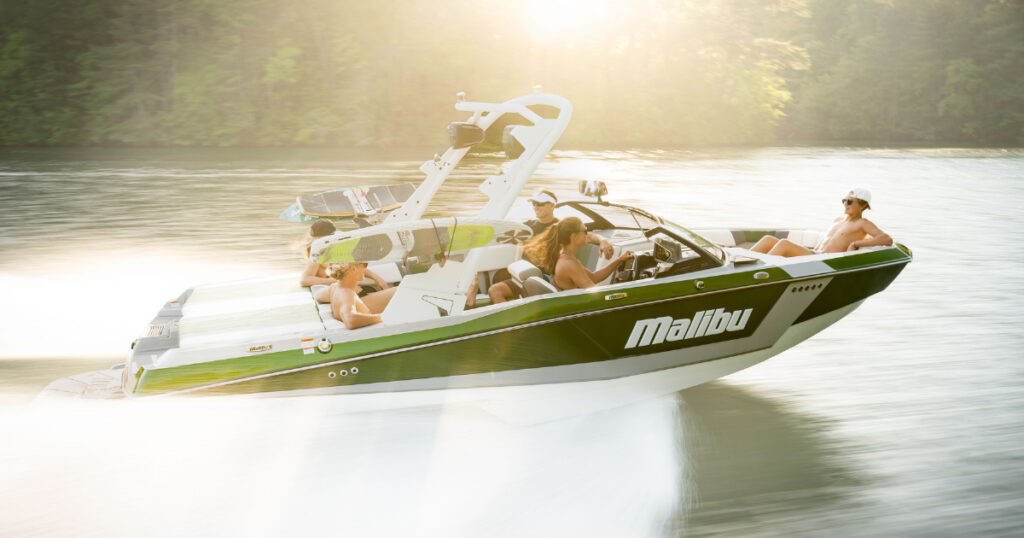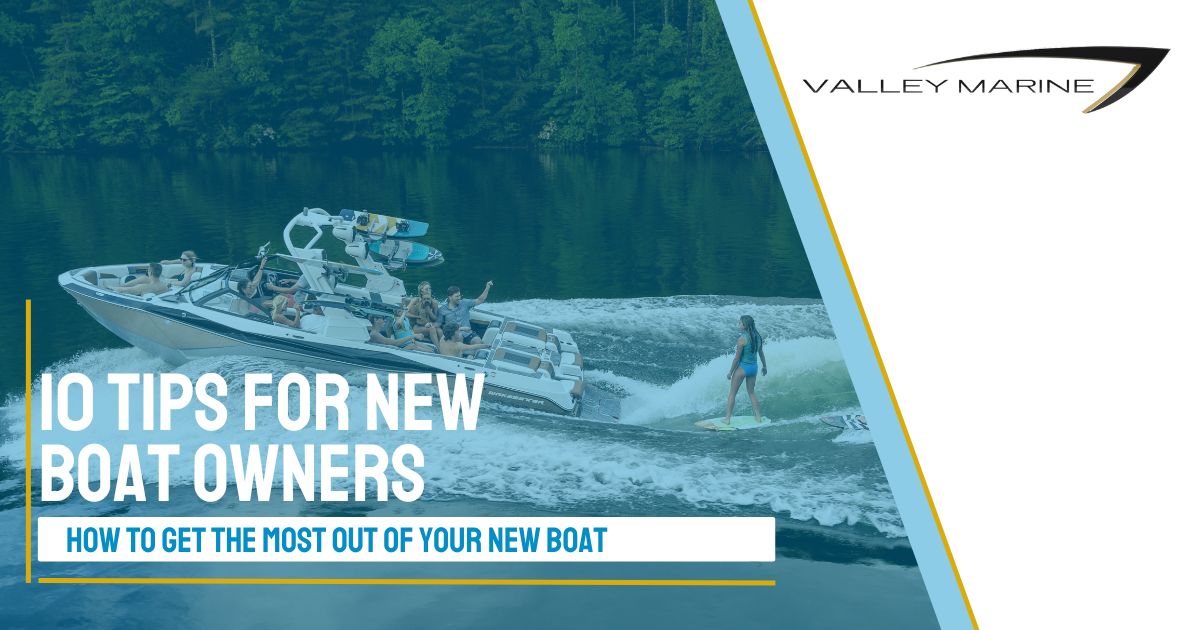Attention boat owners! Buying a boat was the first step. Now you’re about to embark on a wonderful journey of discovery and relaxation.
But before you set sail on your favorite lake, there are a few things you should know about boat ownership. To ensure that your boating experience is as enjoyable as possible, it’s important to be prepared and informed.
Here are 10 tips for new boat owners to help you get started:
Boat Owners Get To Know Their Boat
Understanding the features and mechanics of your boat is crucial for maintaining its safety and performance. Take the time to learn about the different parts of your boat, such as the engine, steering, and electrical systems.
Completely familiarize yourself with the operation of your boat which includes:
- Trailering your boat: Understand the proper way to load, secure, and transport your boat on a trailer. This includes knowing the weight capacity of your trailer and how to properly hitch it to your tow vehicle.
- Knowing how to properly start and stop the engine, including how to check the oil, fuel, and coolant levels. Understand how to troubleshoot any issues that may arise with the engine and how to properly winterize the engine.
- Steering and maneuvering your boat: Learn how to safely control and move your boat in different conditions, including how to dock it. Also, learn how to use the trim tabs and adjust the propeller for the best performance.
- Understanding the functions and operation of all the controls on the boat including the horn, lights, bilge pump, and navigation equipment. Familiarize yourself with the use of the boat’s radio and GPS and learn how to properly use the boat’s safety equipment.
- Understanding your boat’s capacity, weight, and load limits, as well as the manufacturer’s instructions for operation and maintenance.
Knowing your boat well will help you spot and fix problems, keeping you and your passengers safe while on the water.
Boat Owners Choose the right insurance policy
Having insurance for your boat is essential in case of accidents or damage and is one of the costs of owning a boat. Be sure to research different policies and choose one that fits your specific needs.
Consider factors such as:
- The type of boat you have
- How you plan to use your boat
- The level of coverage you require
It’s important to understand what is covered under your insurance policy and what is not. Some policies may cover only liability, while others may cover damages to the boat and its equipment. Some policies may also cover medical expenses, in the event of an accident.
Make sure you understand the insurance policy and choose the right one to suit your needs.
Understand your state’s boating laws and regulations
Each state has its own set of rules and regulations for boating. This includes but is not limited to:
- The laws for boat registration and licensing your boat
- The laws of holding a valid boating license
- The rules for safe operation and speed limits
- The laws against boating under the influence
It’s important to know and follow the boating laws of the state where you will be operating your boat. This will keep you and your passengers safe and prevent any legal issues while boating.
Boat Owners Practice Safety First
Taking a boating safety course is not only a good idea, but it may also be required in some states. These courses cover important information such as boating safety rules, navigation, and emergency procedures. It’s a great way to gain knowledge and skills to ensure a safe and enjoyable boating experience.
Additionally, it also helps to get familiarized with the local boating laws and regulations as well as, best boating practices.
Familiarize yourself with nautical terms
Boating has its own language, and understanding nautical terms is crucial for communication and navigation.
Learn terms such as port, starboard, bow, and stern, as well as common navigation terms such as buoy, channel, and lighthouse.
It’s important to know how to read and use maps for navigation while on the water and to understand the meanings of different flags used on boats.
Be prepared for bad weather
Boating in bad weather can be dangerous, so it’s important to be prepared. Make sure you have all the necessary safety equipment on board, such as life jackets, emergency flares, and a VHF radio.
Keep an eye on the weather forecast and be prepared to head back to shore if conditions become too severe. It’s also important to have a plan in case of an emergency, such as knowing the location of nearby marinas or shelter.
Being prepared for bad weather can help keep you and your passengers safe on the water.
Be aware of hazards
Boating can come with many hazards, such as other boats, rocks, and shallow water. Always be aware of your surroundings and take the necessary precautions to avoid accidents. This includes staying alert, obeying boating laws, and using your navigation equipment correctly.
It’s also important to be aware of the local hazards, such as currents, tides, and sandbars, which can vary from place to place.
Check your equipment
Before you set sail, it’s important to make sure all of your equipment is in good working condition. This includes checking the engine, steering, and electrical systems, as well as all safety equipment. Make sure you have enough fuel and other supplies for your trip, and bring extra supplies in case of emergencies.
It’s also important to regularly maintain your boat and equipment, to ensure they are in good working condition and to prevent unexpected breakdowns.
Boat Owners Plan Ahead
Planning ahead is key to a successful boating experience. Make sure you know your destination, the best routes to get there, and what to expect when you arrive. This includes having a detailed map of the area, knowing the tides and currents, and being aware of any potential hazards.
Additionally, it is also important to have a plan for unexpected situations, such as mechanical failures or bad weather.
Boat ownership is a thrilling experience that comes with many responsibilities, but don’t let that intimidate you. By following these tips you’ll be able to handle your boat with confidence and make the most of your boating experience.
While safety should always be your top priority, don’t forget to have fun and make the most of your time on the water.
Whether it’s Malibu, Southbay, Axis, Cobalt, or Boston Whaler, Valley Marine is ready to help get your boat in top-notch shape today. Need some help with your boat service? Contact Valley Marine’s award-winning team of marine technicians for in-shop or on-location boat service today!

